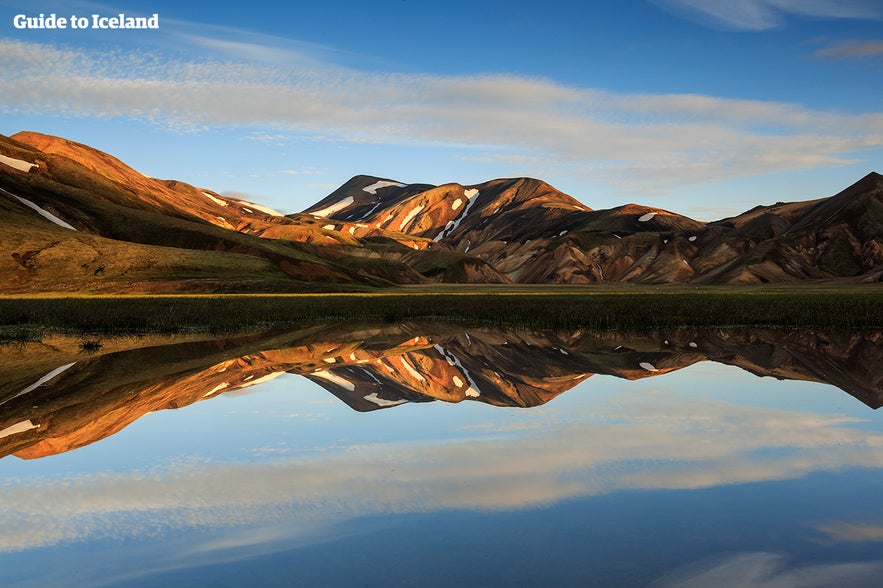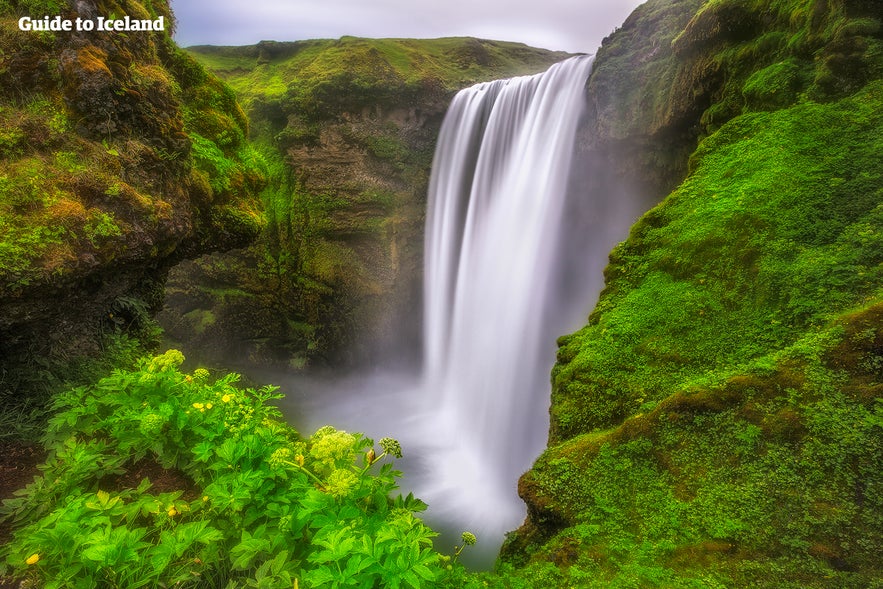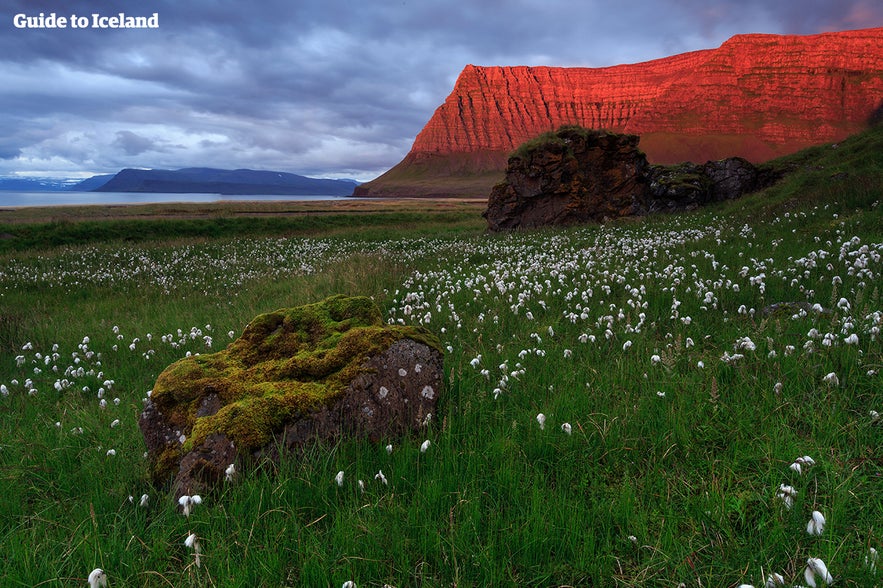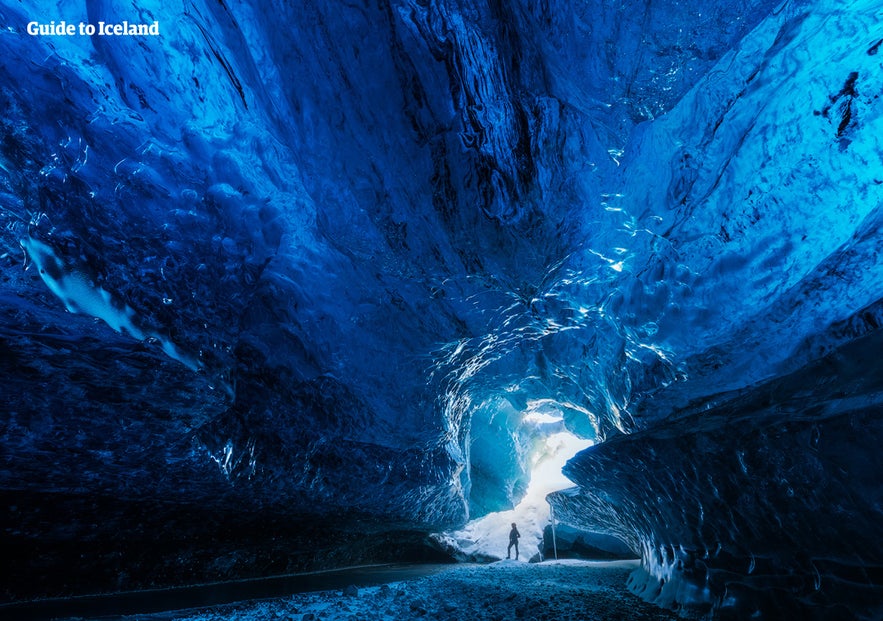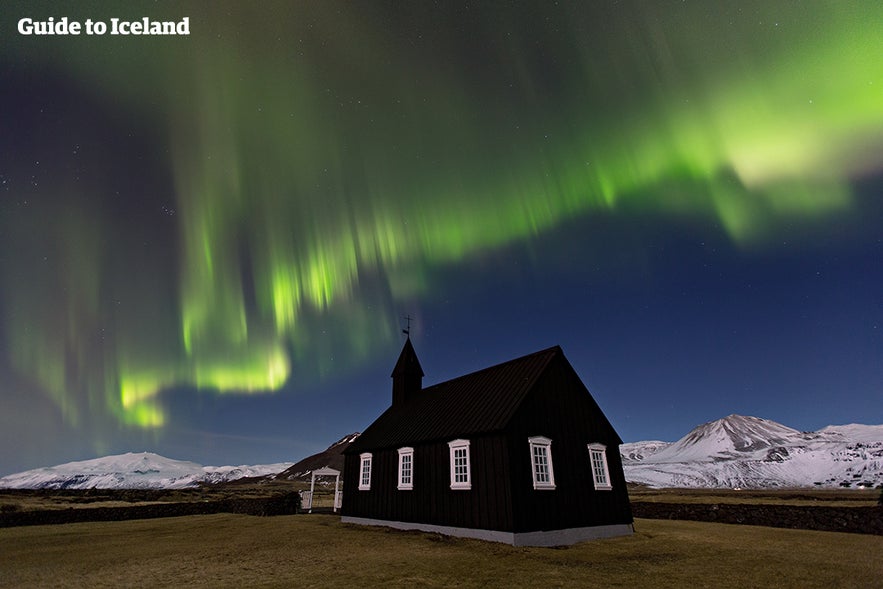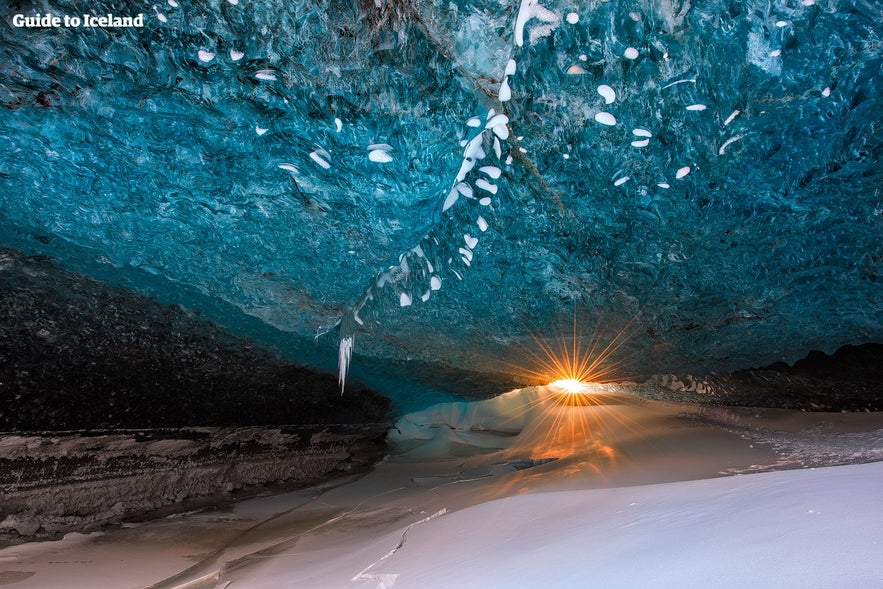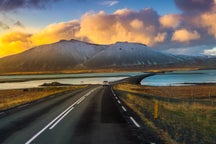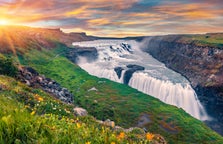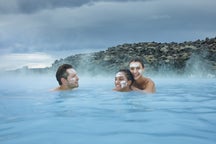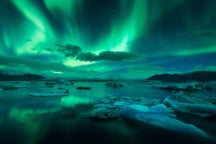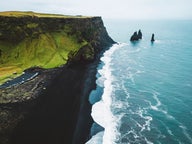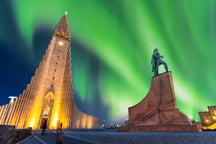What can you see and do with seven days in Iceland? Is seven days enough in Iceland if you want to travel around the whole Ring Road? Read on to find the best ideas for your Iceland itinerary!
Is a week enough in Iceland? Yes! Seven days gives you plenty of time to explore Iceland’s breathtaking landscapes and cultural highlights. The Ring Road, a single paved highway, circles the entire island, making it possible to see the country’s top attractions with tours and vacation packages.
Why You Can Trust Our Content
Guide to Iceland is the most trusted travel platform in Iceland, helping millions of visitors each year. All our content is written and reviewed by local experts who are deeply familiar with Iceland. You can count on us for accurate, up-to-date, and trustworthy travel advice.
How much does a seven-day trip to Iceland cost? While Iceland is known for being a pricey destination, there are several ways to save money in Iceland. Opting for shared accommodations, cooking your own meals, and choosing budget-friendly activities can make a big difference.
Continue reading to learn more about an Iceland itinerary for 7 days with options in the summer and winter.
Key Takeaways
-
7 days in Iceland is enough to see the highlights: A week gives you time to explore Iceland’s top attractions, from the Golden Circle to the Ring Road.
-
Plan your route based on interests: Whether you prefer scenic road trips, adventure activities, or cultural experiences, there are itinerary options to match your travel style.
-
Iceland offers incredible scenery in any season: Summer brings the midnight sun and easier road conditions, while winter offers the chance to see the northern lights and stunning icy landscapes.
-
Guided tours offer a stress-free option: If you prefer not to drive, you can tour Iceland in 7 days with guided tours, providing a hassle-free way to experience the best sights with expert local guides.
Summer or Winter Travel?
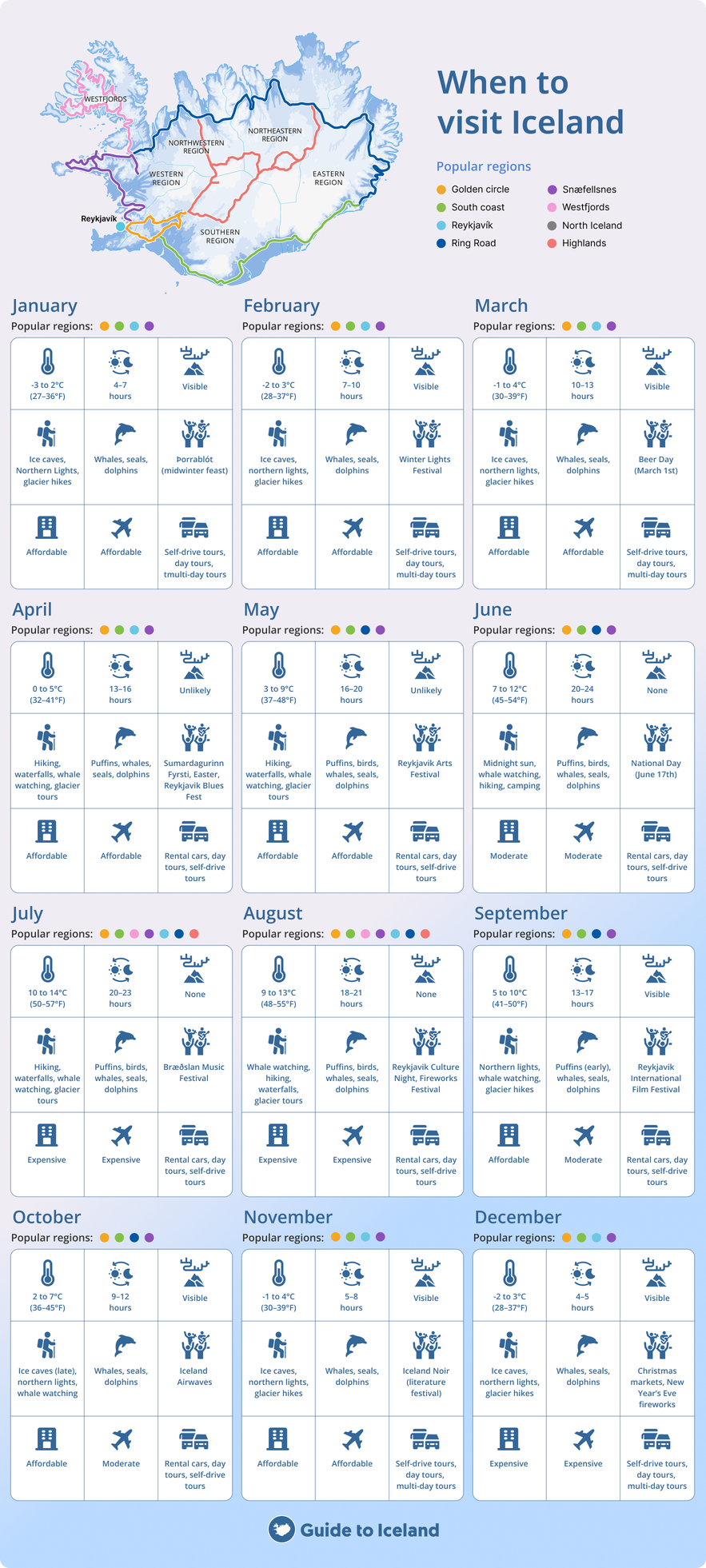
Summer and winter are considered the main seasons because of the seasonal extremes and their benefits. In winter, the Icelandic countryside is blanketed with pure white snow, and the northern lights dance bright overhead.
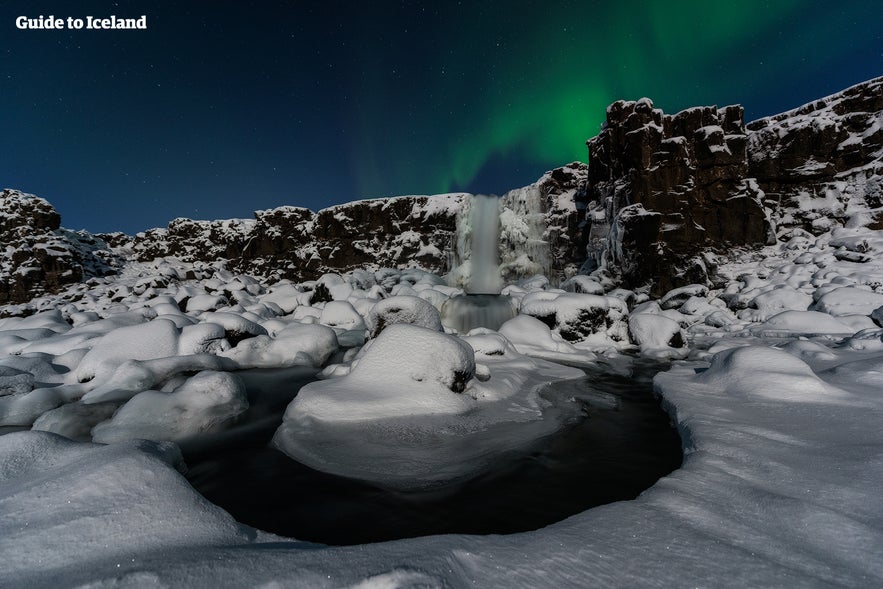
For those interested in skiing and snowboarding in Iceland, resorts also open in winter, depending on snowfall. As previously mentioned, the aurora borealis is an elusive presence in the night sky throughout this period.
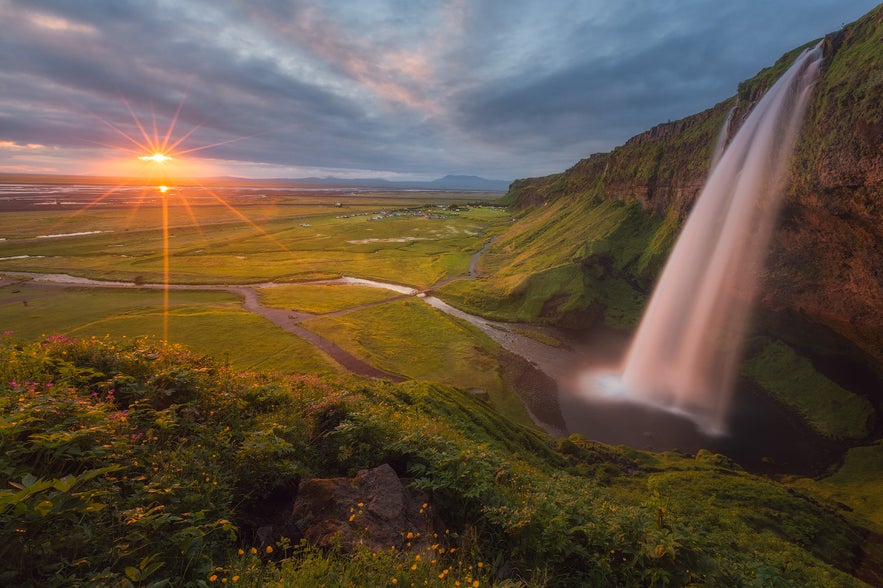 On the other hand, summer sees nearly 24-hour light under a phenomenon known as the midnight sun. Summer starts in March, although there will still likely be snow on the ground for the initial few weeks.
On the other hand, summer sees nearly 24-hour light under a phenomenon known as the midnight sun. Summer starts in March, although there will still likely be snow on the ground for the initial few weeks.
The summer sees an abundance of creative and cultural energy as the local population ventures out into the sunshine. It's also a season of festivals in Iceland, making it a fun time to travel.
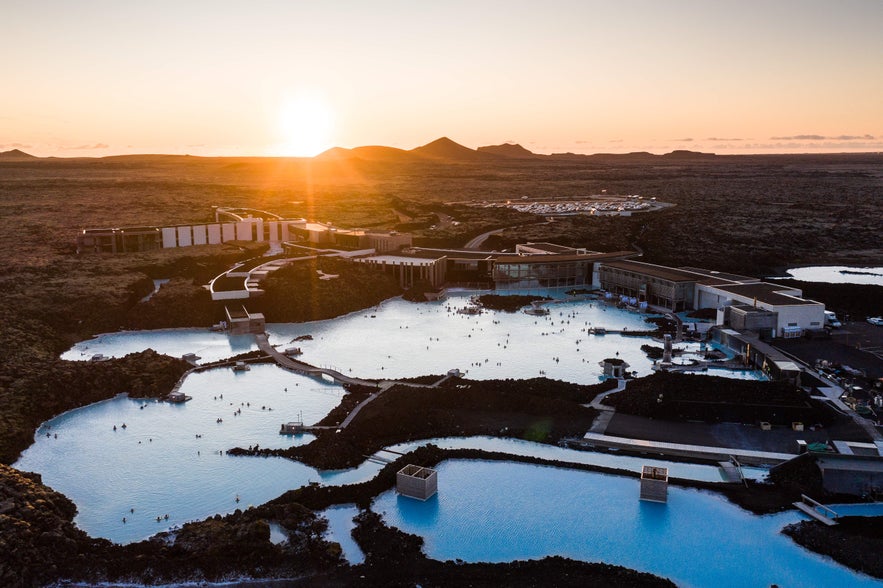 Hikers will now be able to access the trails of Landmannalaugar Hot Springs and Thorsmork Valley and enjoy the best of nature.
Hikers will now be able to access the trails of Landmannalaugar Hot Springs and Thorsmork Valley and enjoy the best of nature.
Thankfully, most of Iceland's major attractions are readily available in both winter and summer. Two such examples are the famous Blue Lagoon Spa and the Golden Circle sightseeing route.
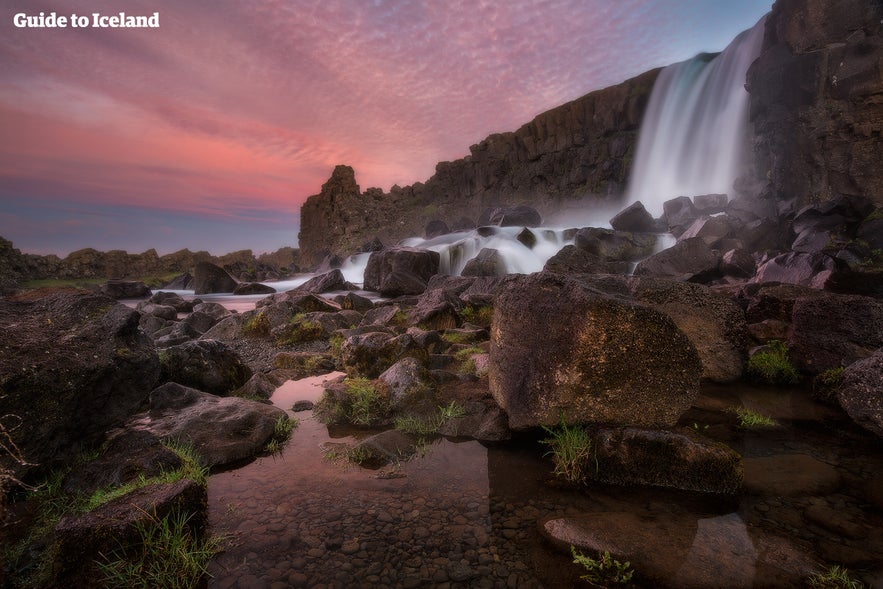
Whichever season you decide to travel here, you'll be sure to find plenty of adventure. Many travelers choose to come back to Iceland to experience both seasons, as it feels like visiting an entirely different country.
- See also: Iceland's Seasonal Contrasts
How To Spend 7 Days in Iceland in Summer
So you've managed to bag yourself a week in the summer to discover the many magical experiences in store for you in Iceland. Travelers during this period should make the most out of the long days, traveling as much of the country as they can in the time available.
We recommend spending at least one or two days in Iceland's capital city, Reykjavik, before traveling out to the rest of the country.
Is Iceland’s Ring Road worth it? Yes, it is!
You can take in many of the top attractions in Iceland when you follow the Ring Road. To travel the entire route within a week, you will need to drive approximately four hours a day and limit your time at attractions by the Ring Road.
Consider that between late May and early August, you'll have nearly 24 hours of daylight. This provides plenty of time to explore, as well as providing you with that extra burst of energy.
If you're looking for a more relaxing holiday experience, we recommend choosing one particular region of the country to explore. From Southwest Iceland, it is relatively easy to combine attractions found in North Iceland and along the South Coast.
Iceland's most popular sightseeing route, the Golden Circle, is also an easy drive from the capital.
For those looking to remain independent and travel the country via summer self-drive tours, we recommend this 7-day North Iceland self-drive tour that takes you around the incredible natural attractions of Iceland's north.
If you'd like to explore the other side of the country, here is a suggested 7-day South Coast self-drive tour that includes modifiable options.
If you'd prefer not to drive yourself, choose between plenty of day trips or multi-day tours departing from Reykjavik. For example, this 7-day guided minibus tour provides a real insight into why Iceland is "the land of fire and ice." It brings you all around the whole Ring Road with stops at glaciers and volcanoes.
These packages are the perfect choice for those looking to avoid any organizational responsibility. For instance, you'll be picked up from the airport and driven directly to your Iceland accommodations or activity.
Taking a package tour leaves you, as the traveler, free to sit back and relax as nothing but gorgeous scenery and fascinating attractions pass by the minibus window.
If you want to see as much of the country as possible—meaning, you'll want to conquer the entire Ring Road—then you can partake in this incredible 7-day guided tour of the Ring Road and Snaefellsnes Peninsula.
However, this tour does not include a pickup and drop-off at Keflavik Airport, so you will have to arrive in Iceland the night before. You could either take an evening flight out of the country or add an extra day to your trip.
If you want a flexible tour package, consider this 7-day customizable summer package, allowing you to choose between many exciting activities. With this tour, you could choose to spend more time in Reykjavik, discovering the city's many museums and galleries.
For specific ways to spend a week in Iceland in summer, check out the following idea for your Iceland seven-day summer itinerary.
7 Days in Iceland Summer Itinerary Ideas
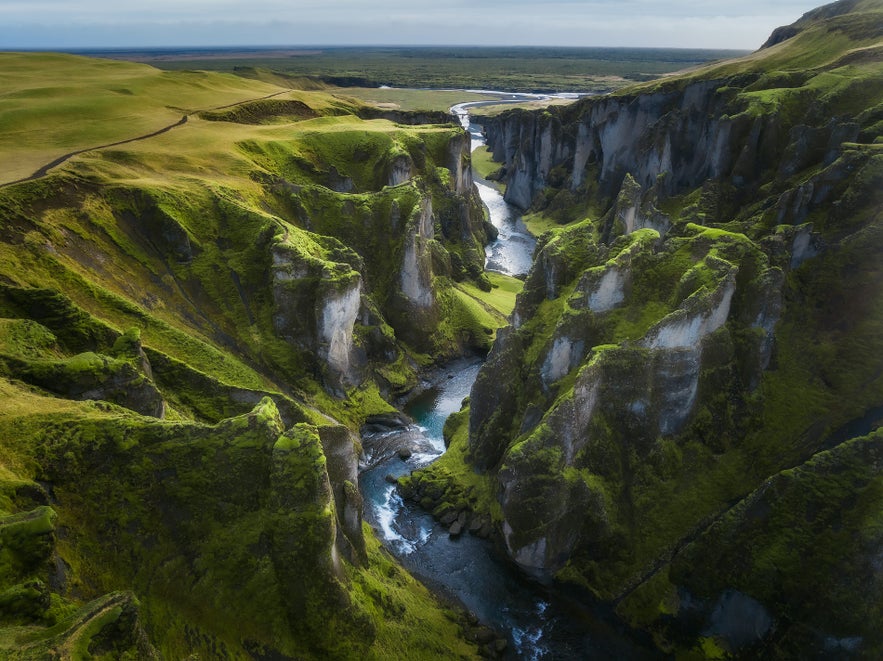
Long summer days and good driving conditions allow you to visit remote regions of the country and pack in plenty of sights and activities. See the best of Iceland in seven days with the following Iceland seven-day self-drive itinerary covering the Ring Road and the Snaefellsnes Peninsula.
-
Day 1: Begin your seven-day summer adventure in Iceland by exploring the top Golden Circle attractions. Depart the city of Reykjavik and experience three or four incredible natural wonders in one day. Drive to Thingvellir National Park, Geysir Geothermal Area, and Gullfoss Waterfall. If time allows, finish your day at the spectacular Kerid Crater. Stay the night in your choice of hotels in the Golden Circle area.
-
Day 2: Day two takes you across the awe-inspiring South Coast. Do not miss the Skogafoss Waterfall, Reynisfjara Black Sand Beach, or Fjadrargljufur Canyon. Stay near Skaftafell Nature Reserve so you are ready for your third day of adventure.
-
Day 3: Spend day three covering two breathtaking areas — the Jokulsarlon Glacier Lagoon and the Eastfjords. Marvel at the gigantic icebergs in Jokulsarlon Glacier Lagoon, then check out Diamond Beach nearby. Next, drive to the stunning Eastfjords to see Vestrahorn Mountain and explore the beautiful winding fjords and calm fishing villages. After spending the day relaxing in the Vok Baths Geothermal Spa, spend the night in a nearby hotel or guesthouse.
-
Day 4: On day four, head north to Studlagil Canyon and Lake Myvatn, also stopping at the mighty Dettifoss Waterfall. When you get near Lake Myvatn, explore the Namaskard Geothermal Area, plus the magnificent Godafoss Waterfall. Stay the night in the town of Akureyri.
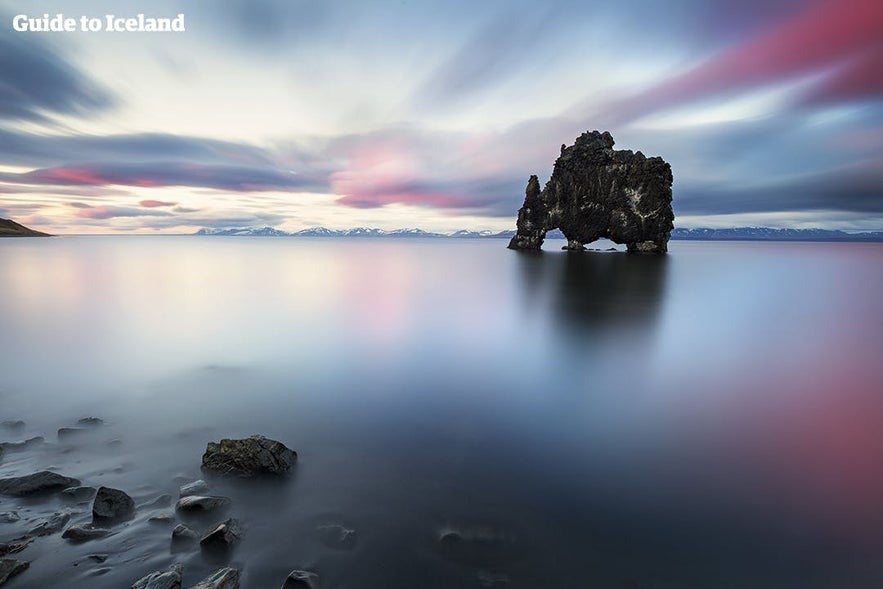
-
Day 5: Head up the picturesque Trollaskagi Peninsula to the charming villages of Dalvik, Olafsfjordur, and Siglufjordur. Next, visit the striking Hvitserkur Rock Formation before hiking up the tallest crater at Grabrok Volcano. Spend the night near the Snaefellsnes Peninsula, ready for your next day of adventure.
-
Day 6: Day six of your Iceland road trip itinerary takes you off the Ring Road to explore the natural diversity of the Snaefellsnes Peninsula. Berserkjahraun Lava Field, Kirkjufell Mountain, and Snaefellsjokull National Park are the main sights to prioritize.
-
Day 7: Finish your trip by discovering the best of West Iceland. Start at Deildartunguhver Hot Spring before heading to Barnafoss Waterfall and Hraunfossar Waterfalls. Complete your trip with a caving adventure at the Vidgelmir Cave before returning to Reykjavik.
How To Spend 7 Days in Iceland in Winter
Traveling Iceland in the winter is an entirely different story to the summer, requiring more forethought and respect. It is a far more accessible and sensible choice in the winter to stay close to Reykjavik, not venturing too far out into the harsh Icelandic wilderness.
Though it might sound strange, attempting to travel to some of the country's most remote spots during the winter is dangerous and often impossible. It puts yourself and others—including the rescue teams—at risk.
Each night throughout your week, you will want to ensure you're looking up at the sky, eagerly hunting down those elusive northern lights. Don't plan your trip solely around the aurora borealis, however, as there are plenty of other exciting places and things to see during your seven days.
Find the perfect balance between constant stargazing and filling your evening with other winter activities across Iceland. Enjoy the ultimate winter itinerary to make the most of your trip.
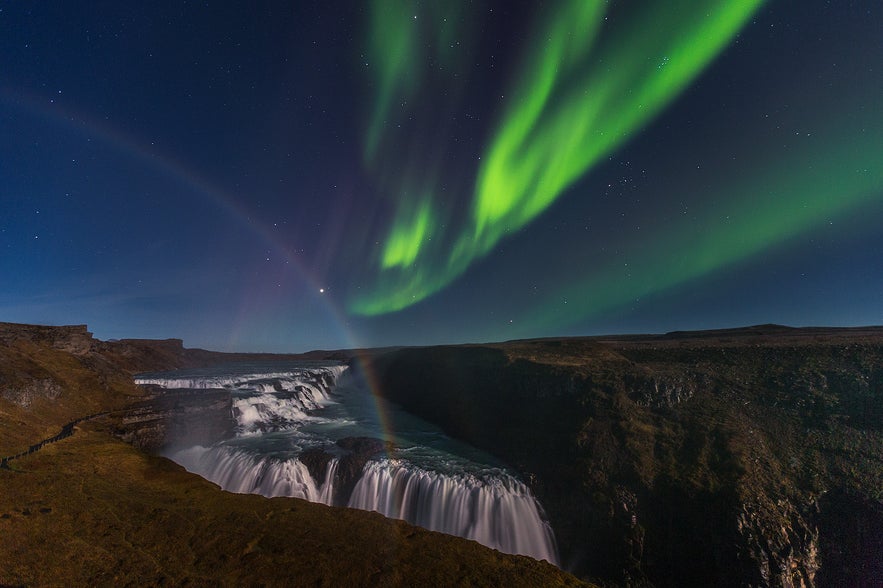 Day tours to the Golden Circle, half-day excursions to the Blue Lagoon Geothermal Spa, and tours to explore the Snaefellsnes Peninsula remain popular during wintertime.
Day tours to the Golden Circle, half-day excursions to the Blue Lagoon Geothermal Spa, and tours to explore the Snaefellsnes Peninsula remain popular during wintertime.
We would still recommend spending at least one night outside of Reykjavik, however, as it provides a fantastic opportunity to see mainland Iceland under a blanket of white snow.
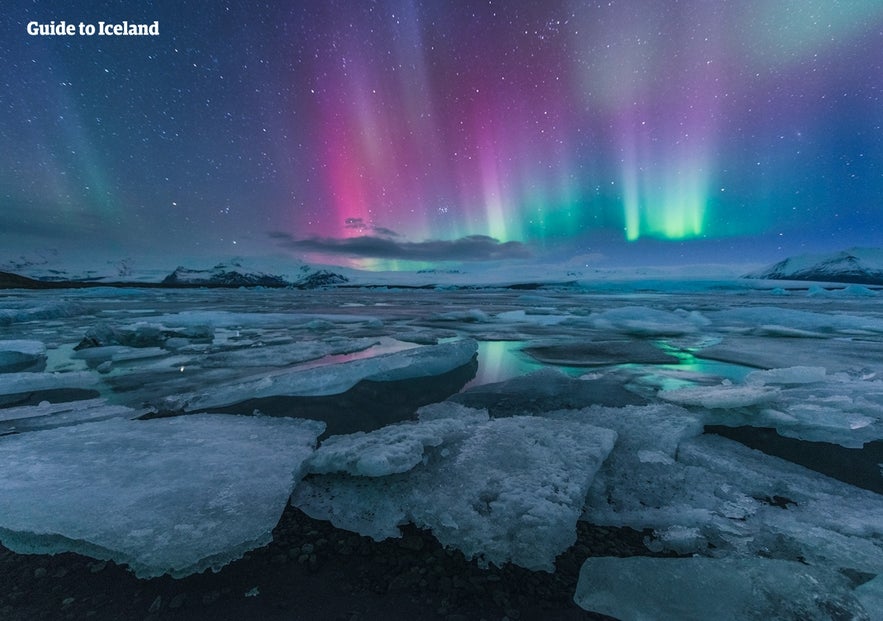
The South Coast is more easily accessible than the North in the wintertime. Though you also should find driving to Akureyri or Myvatn relatively straightforward.
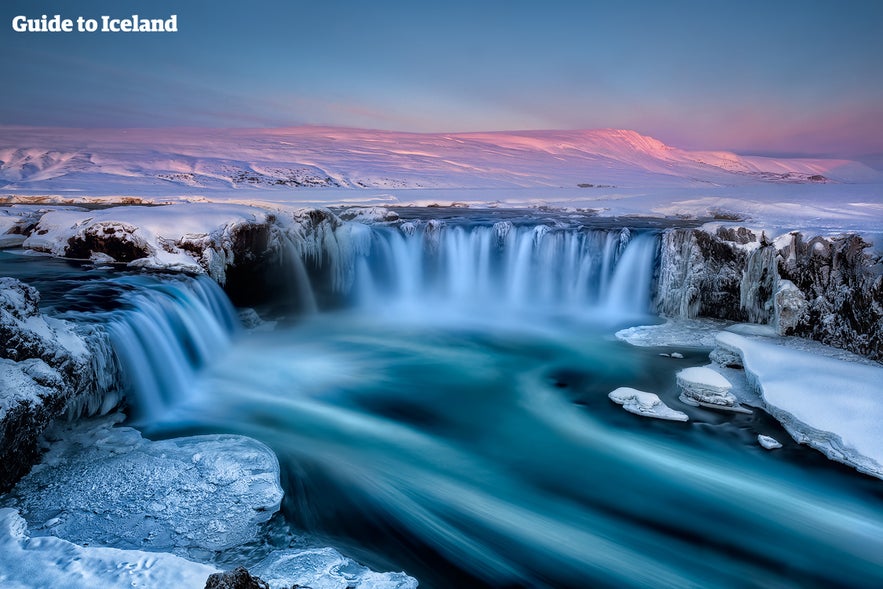
The winter daylight hours are really short (maximum four hours), and the weather is unpredictable. It often switches from clear skies to storms in under half an hour.
There is also a much higher degree of ice and snow on the roads, meaning journey times are much longer than in optimal conditions.
In midwinter, you can enter one of Iceland's most stunning natural attractions: an ice cave underneath a glacier.
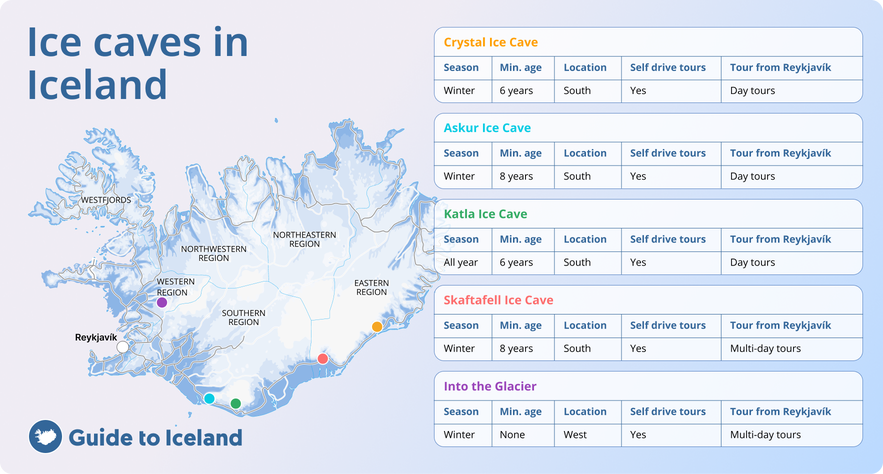
If it's too warm or has recently been raining, the ice caves will quickly begin to melt, making them unsafe to enter. If you are in the southeast part of the country and conditions for ice caving are optimum, you might find yourself lucky enough to experience the ice caves.
This 7-day northern lights self-drive tour takes you directly to the South Coast of Iceland, one of the island's most picturesque strips. You can also partake in the 7-day winter self-drive tour of North Iceland and the Golden Circle, allowing time to enjoy attractions in Iceland's Southwest.
If you'd prefer to go on an organized tour rather than drive yourself, then we'd recommend this 7-day winter vacation package featuring the northern lights and ice caves or this 5-day winter package.
There are also plenty of day trips or shorter two-day excursions available in wintertime. Check out our best seven-day Iceland itinerary idea for winter below.
7 Days in Iceland Winter Itinerary Ideas
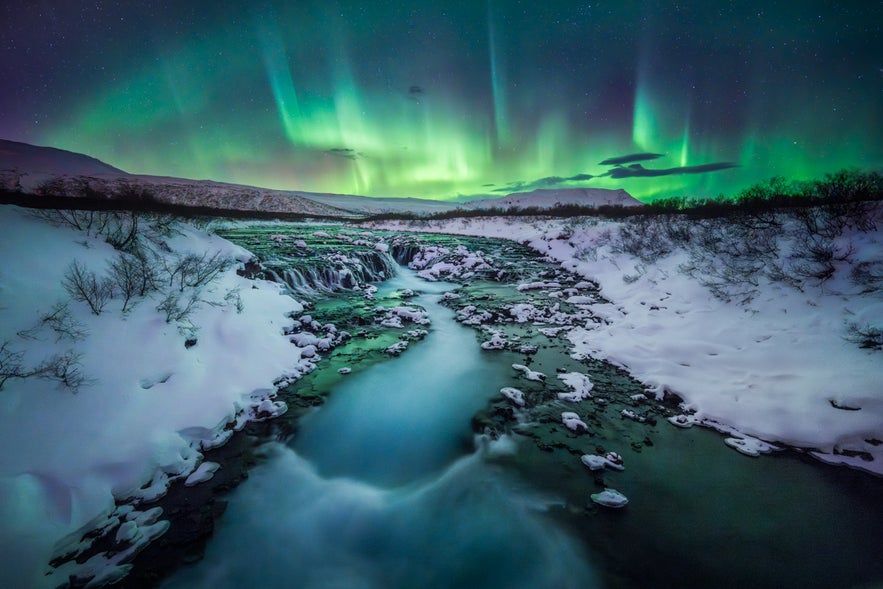 With short days during winter, you won't be able to fit in as many attractions as you can in summer. Instead, you can focus on two uniquely winter activities: northern lights hunting and ice caving.
With short days during winter, you won't be able to fit in as many attractions as you can in summer. Instead, you can focus on two uniquely winter activities: northern lights hunting and ice caving.
The following idea for your Iceland road trip in winter offers adventure and relaxation, covering the Snaefellsnes Peninsula, Golden Circle, and South Coast.
-
Day 1: Start your Iceland travel itinerary with some incredible relaxation at the Blue Lagoon Spa. Melt the tension away at this world-class spa destination before driving to Reykjavik for the night.
-
Day 2: On day two, drive to the gorgeous Snaefellsnes Peninsula. Must-visit attractions for your day here include Ytri Tunga Beach, Arnarstapi and Hellnar fishing villages, and Snaefellsjokull National Park. Stay at your choice of accommodation nearby.
-
Day 3: We recommend you spend more time on the Snaefellsnes Peninsula, visiting the striking Kirkjufell Mountain, Hraunfossar and Barnafoss Waterfalls, and Deildartunguhver Hot Spring. Then, drive back to Reykjavik for the night.
-
Day 4: Next, take a round trip to explore the Golden Circle. Do not miss Gullfoss Waterfall, Geysir Geothermal Area, and Thingvellir National Park. You could also take this snowmobile tour before heading back to Reykjavik for some extra adventure.
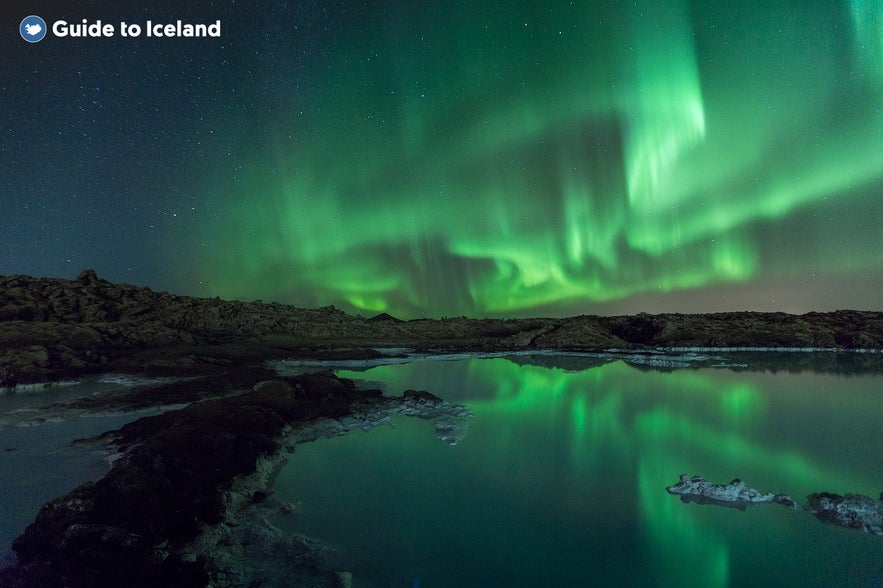
-
Day 5: Spend day five exploring the South Coast. Marvel at the stunning Seljalandsfoss and Skogafoss Waterfalls, Reynisfjara Black Sand Beach, and Jokulsarlon Glacier Lagoon. Stay nearby, ready for an epic day tomorrow.
-
Day 6: Explore the crystal blue ice-caving tour in Vatnajokull Glacier for the ultimate adventure. Look out for opportunities to see the northern lights on your drive back to Iceland's capital, and check out the vibrant Reykjavik nightlife if you have the energy.
-
Day 7: Top off your Iceland seven-day itinerary with excellent shopping, culture, and cuisine in Reykjavik. Top attractions include Hallgrimskirkja Church, the National Museum of Iceland, and Laugavegur Street.
FAQ About 7 Days in Iceland
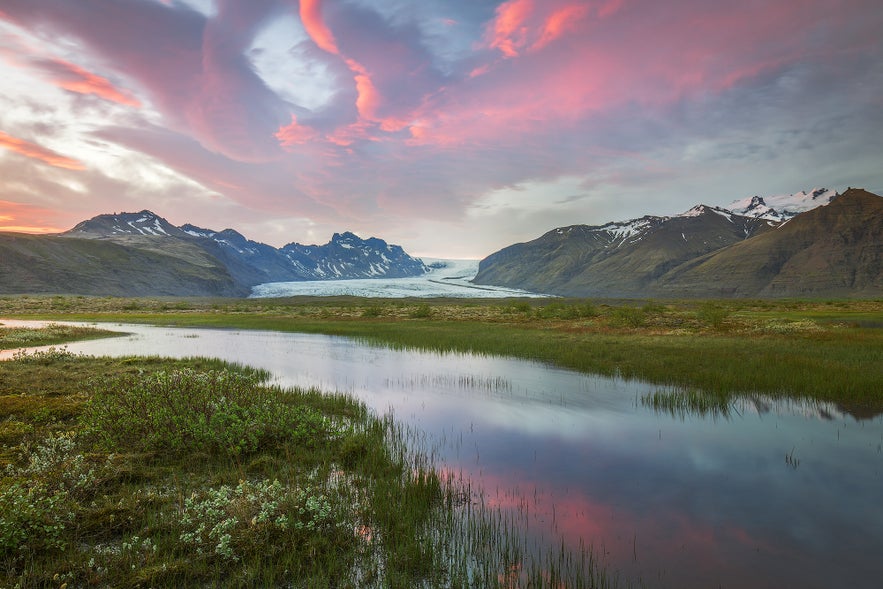 Here are some of the top questions about spending seven days traveling to Iceland.
Here are some of the top questions about spending seven days traveling to Iceland.
Is 7 Days in Iceland Enough?
Yes, a week is plenty of time to see major attractions and experience Iceland’s natural wonders.
Can You See All of Iceland in 7 Days?
You can complete the Ring Road route in seven days, but exploring every region in depth would take longer.
What To Do With 7 Days in Iceland?
Visit waterfalls, glaciers, hot springs, and national parks, and explore the Ring Road or Golden Circle routes.
Can I Do Iceland’s Ring Road in 7 Days?
Yes, 7 days is enough to drive the Ring Road while stopping at key sights along the way.
Plan Your Perfect 7-Day Iceland Adventure
We hope this guide has given you plenty of inspiration for your seven-day itinerary in Iceland. Whether you choose self-drive adventures along the Ring Road or prefer the ease of guided multi-day tours, there are endless ways to experience Iceland’s breathtaking landscapes.
If you have less time to explore, be sure to check out our suggested itineraries for three, four, five, or six days to make the most of your trip. No matter how you travel, Iceland promises an unforgettable journey. Wishing you an incredible seven-day adventure across Iceland.
What will you do for your seven days in Iceland itinerary? Will you travel here in the summer or the winter? Please leave your thoughts and queries in the comment section below.

